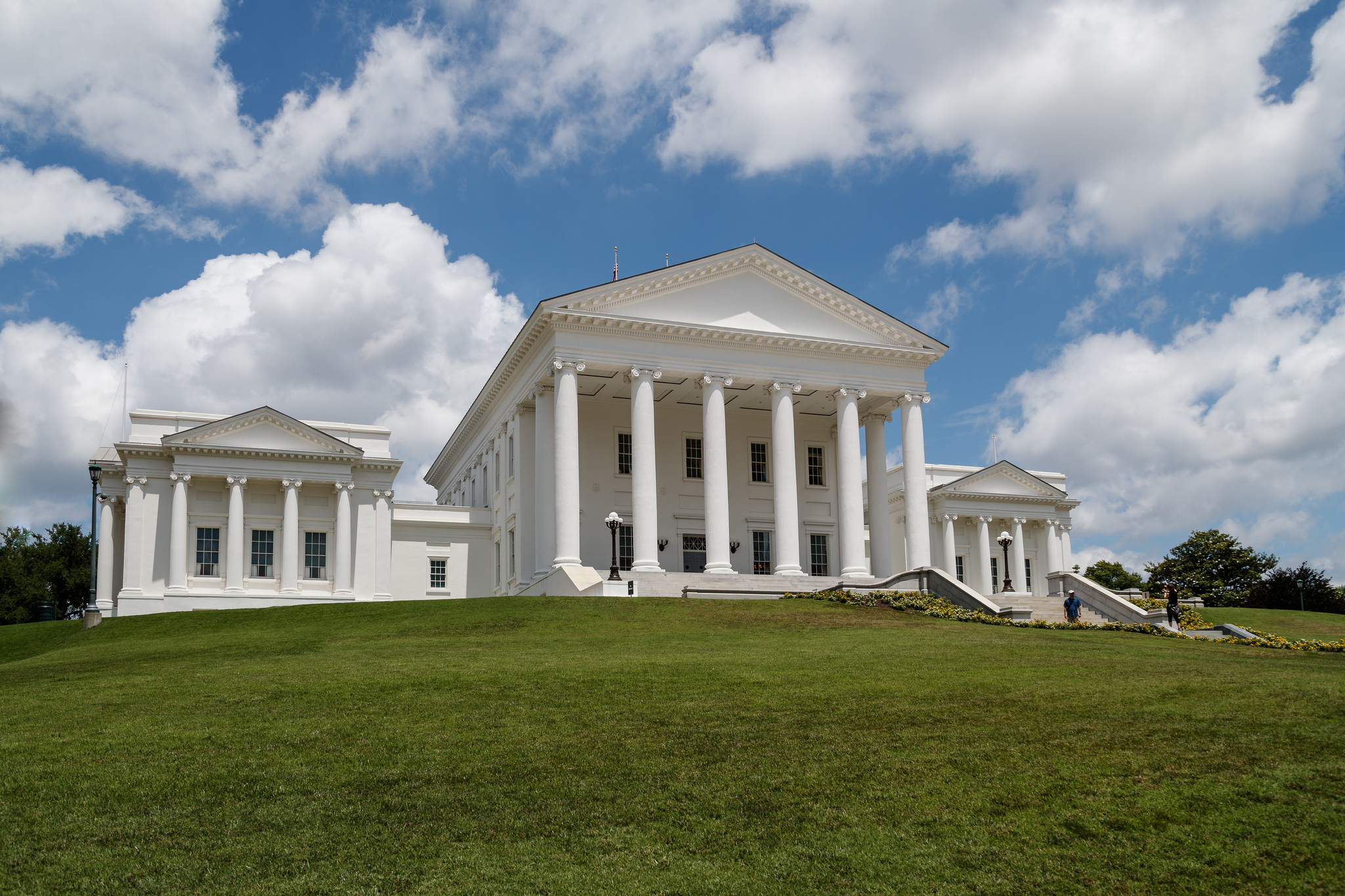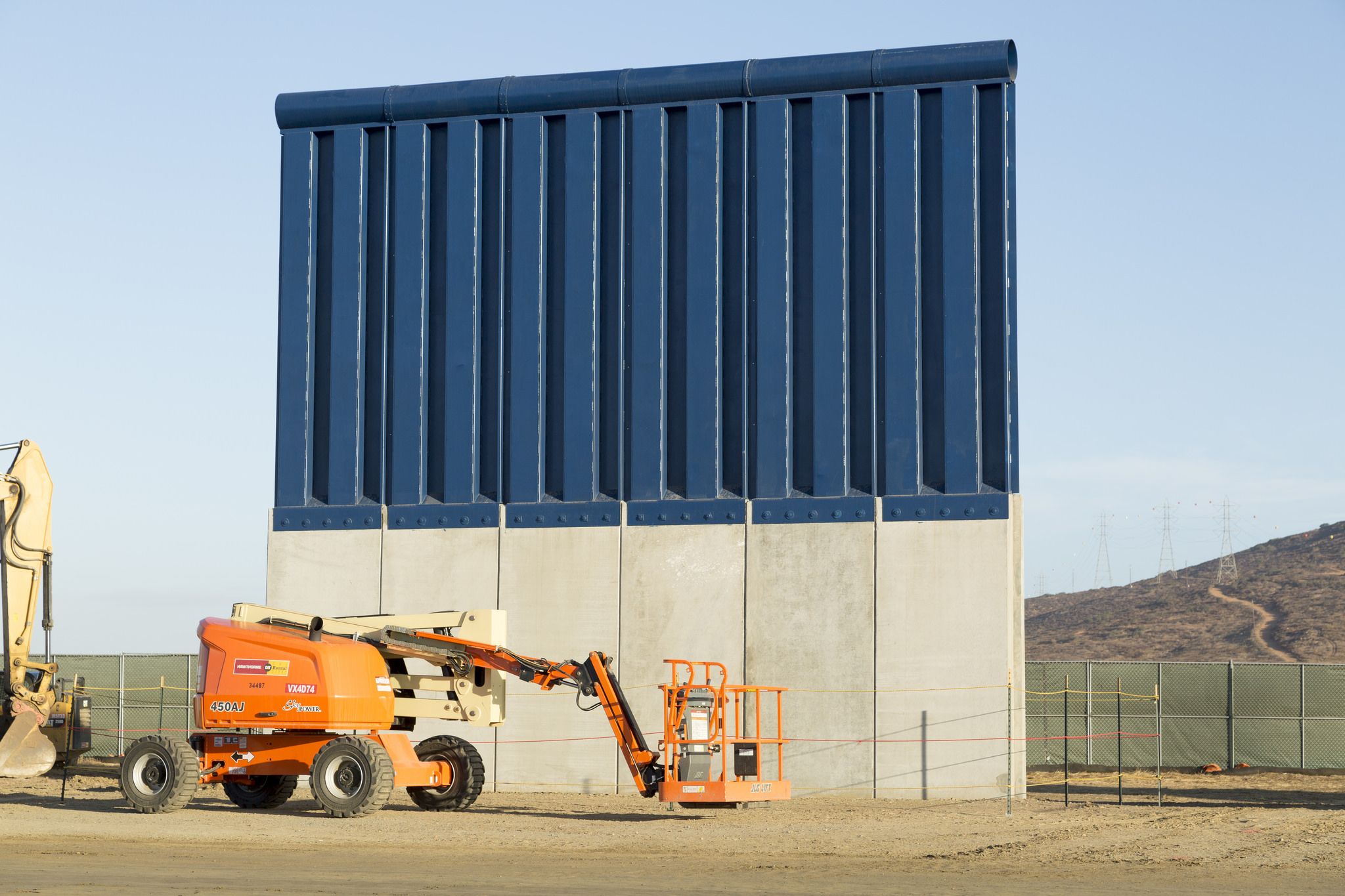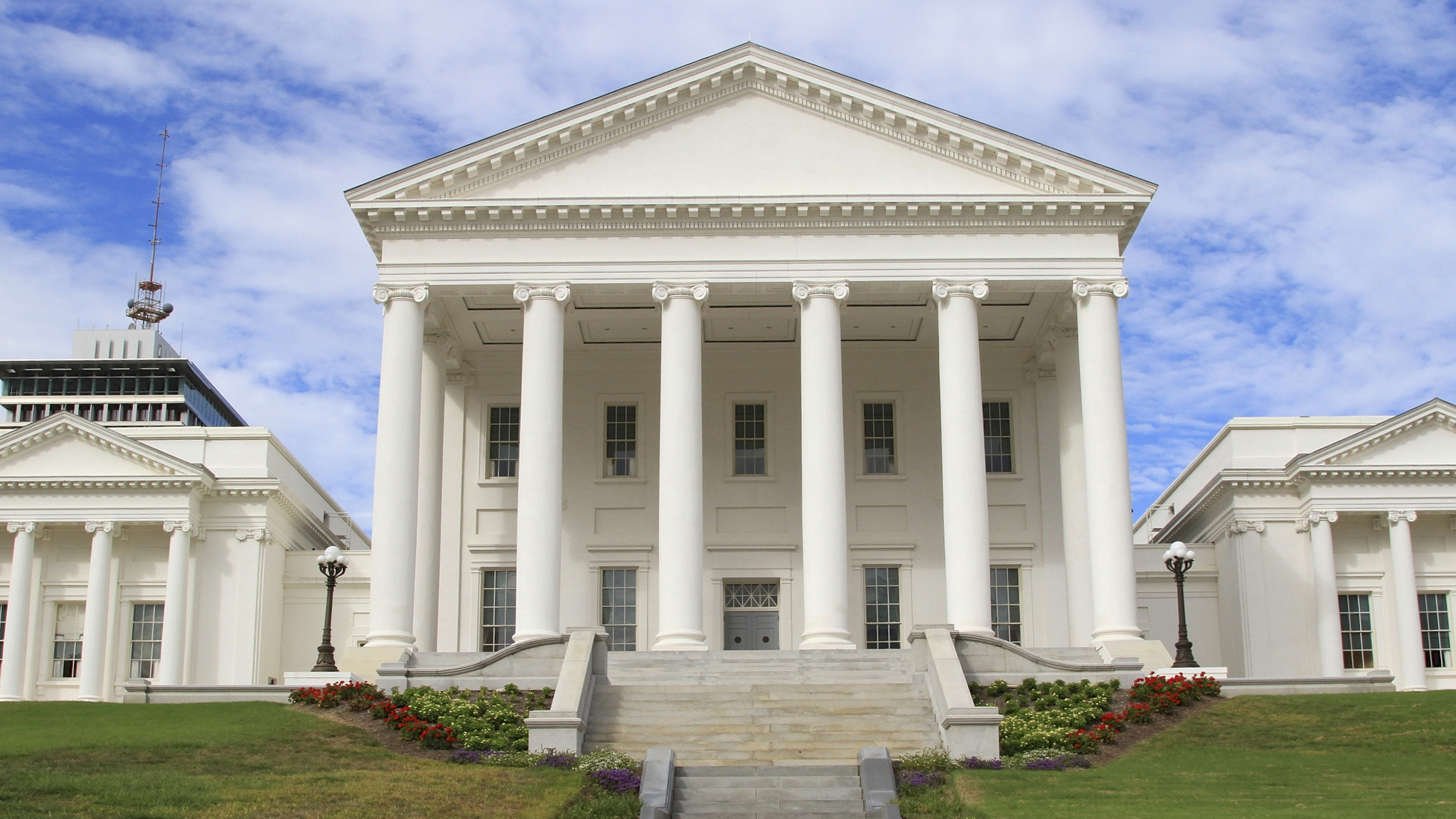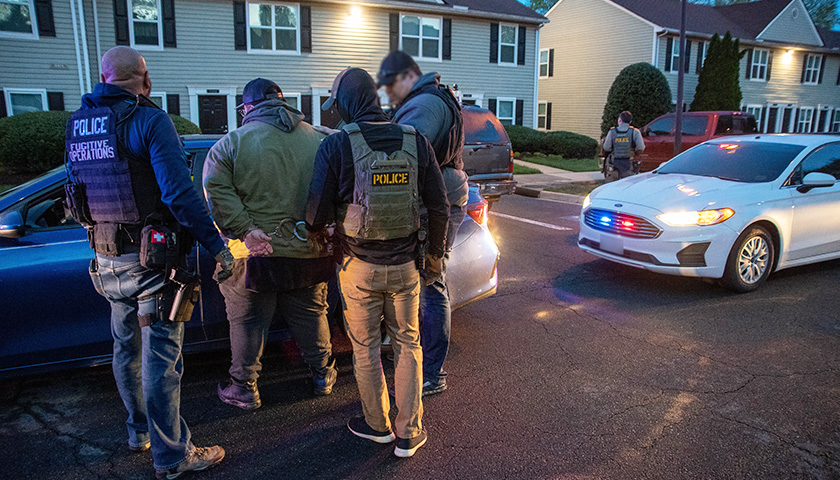Two Virginia delegates, one current and one former, are 24 hours away from facing off at the ballot boxes to replace the seat vacated by recently-elected Congresswoman Jennifer Wexton (VA-10) in the 33rd Senate District ahead of the 2019 General Assembly Session beginning Wednesday. Voters in portions of Loudoun and Fairfax counties, including the cities of Sterling, Leesburg, and Herndon, will choose between Republican candidate and former House of Delegates member Joe May and Democratic candidate and Delegate Jennifer Boysko (D-Fairfax) in the January 8 special election.
In a deeply “blue” part of an already Democratic-leaning Northern Virginia, May, an inventor and businessman with two decades of experience in the state legislature, made a name for himself as a moderate Republican in the mid-1990s when Virginia had a Democratic majority in both houses of the General Assembly and a majority GOP executive branch in the precursor to the nationwide “Republican Revolution” of 1994. He admits, though, that he “would be somewhat out of place” in the Republican caucus, which is a big testament to where he is running in Northern Virginia, an area of the Commonwealth where Republicans have become less competitive in burgeoning suburban and ex-urban regions over the past few election cycles.
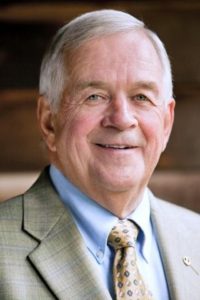 Addressing traffic congestion is a continued priority for May, who chaired the House Transportation Committee during his tenure as a state lawmaker from 1994 to 2014. He explained that he will help solve the Dulles Greenway’s “out of control tolls” and fight for a better funding source for the Washington, D.C. area Metro system, which has mulled privatization as an outlet to improve service and save funds.
Addressing traffic congestion is a continued priority for May, who chaired the House Transportation Committee during his tenure as a state lawmaker from 1994 to 2014. He explained that he will help solve the Dulles Greenway’s “out of control tolls” and fight for a better funding source for the Washington, D.C. area Metro system, which has mulled privatization as an outlet to improve service and save funds.
May was commended as the “principal architect” of a landmark 2013 transportation bill by the Northern Virginia Transportation Commission, which passed with the support of both Republican and Democratic lawmakers.
While working to upgrade sometimes antiquated Virginia technology laws, May will also look to improve higher education statewide. As a holder of over two dozen patents, he supports legislation to advance the STEM (Science, Technology, Engineering and Math) programs and to ensure Virginians have access to the Commonwealth’s “world-class” institutions of higher education.
“We have a substantial shortage of technically trained people in the [education] industry,” May said in a report from the Loudoun Times-Mirror. “In fact, the industry is suffering a bit for not having enough technically qualified people available, so part of that needs to be addressed at the university level.”
May, who was a supporter of Virginia’s expansion of Medicaid access under the Obama-era Affordable Care Act (ACA), said recently that he will review the financial impact of the increased healthcare expenditures as a member of the Senate. In late 2018, just months after the expansion package was signed into law by Governor Ralph Northam (D), analysis shows that Virginia grossly underestimated the actual costs of Medicaid expansion, leading to “massive” cost overruns, which now are tallied at over $460 million.
“I actually supported the Affordable Health Care Act five years ago,” May said. “Unfortunately, it’s heading down a path that I’m not sure we can afford in the long term…we run the risk of pricing health care right out of the market.”
Nevertheless, May says on his campaign website that he “will always fiercely protect seniors’ Medicare benefits and support access to health care coverage for individuals with pre-existing conditions.”
On gun control – set to be a top issue during the 45-day session in Richmond after Speaker of the House Kirk Cox (R-Colonial Heights) authorized the 24-point report from the Select Committee on School Safety – May said he considers himself a “moderate” on the issue. He has explained that he “support[s] common-sense, Constitutional gun safety legislation,” favoring background checks, limiting firearms in bars, and implementing a waiting period for purchasing a weapon.
“Certainly, we need to control gun violence, but I think the answer probably resides on predicting where it’s going to occur and taking corrective action before it occurs,” the Republican hopeful said in the report.
In regards to helping the razor-thin Republican majority in the General Assembly, he would oppose progressive economic measures like raising the minimum wage to $15 an hour and other tax increases, which his opponent Boysko supports.
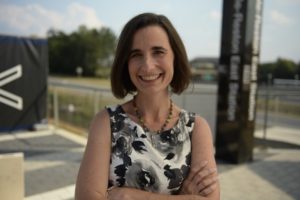 Elected in penultimate push towards the “blue wave” of the 2017 statewide elections, Boysko has taken on pseudo-leadership role within the liberal party. She is often at odds with Democratic leaders like former House Minority Leader David Toscano (D-Charlottesville),” which led to rumors that she was orchestrating a coup to grab his position over the summer after most of the progressive wing’s bills were voted down during the 2018 General Assembly session.
Elected in penultimate push towards the “blue wave” of the 2017 statewide elections, Boysko has taken on pseudo-leadership role within the liberal party. She is often at odds with Democratic leaders like former House Minority Leader David Toscano (D-Charlottesville),” which led to rumors that she was orchestrating a coup to grab his position over the summer after most of the progressive wing’s bills were voted down during the 2018 General Assembly session.
Boysko’s additional priorities for the 2019 session include passing firearm restrictions, and further expanding access to healthcare through state government spending, regardless of the cost overruns.
According to her campaign website, if elected to the Senate, Boysko would “push for in-state tuition for immigrants who arrived as children,” and “advocate to raise the minimum wage to $15 an hour.” Furthermore, she reportedly will work to provide legislation that grants undocumented immigrants and refugees driver’s licenses.
Moreover, Boysko said her top priority is working with the governor to build “an economy that works for everyone.” One of those efforts is $2.2 billion in new state spending, $1.6 billion of which would be recurring after Northam’s term ends.
While Republicans have pledged to re-conform Virginia’s tax code after the passage of the Tax Cuts and Jobs Act (TCJA) in 2017 by President Donald Trump and Republicans in Congress – offering an alternative budget which keeps $1.2 billion in the hands of taxpayers – Democrats have refused to respond to the tax hike. Northam and the encroaching Democratic Party will also work this year to subsidize the earned income tax credit (ETIC) to “level the playing field” among Virginians, tantamount to a middle-class tax increase.
Boysko also said in the report that she is “looking forward to” the upcoming legislation from the “Safe Virginia Initiative.” The Democratic-only contingency was created after Speaker Cox announced the bipartisan select committee to study school safety after last February’s massacre at a high school in Parkland, Florida.
The group is focused on developing policy initiatives to reduce gun violence, with one of the co-chairs relaying that “it isn’t possible to separate school safety from gun safety,” as newly-elected House Minority Leader Eileen Filler-Corn (D-Fairfax), the other co-chair, works to push through gun legislation after over 80 bills from the liberal caucus were shot down during last year’s 60-day session. In Governor Northam’s gun control package for 2019, banning semiautomatic weapons, private firearm sales, gun removal laws, and bringing back the “One Handgun Per Month” law were among the top priorities.
As suburban areas begin to dominate Virginia politics more than ever, Republicans have a chance to regroup from a 15-seat loss in the 2017 statewide elections to win back voters in a district where moderate Republicans have fared quite well in the not so distance past. Although the 33rd district has voted for a Democratic legislator since 2007, the GOP caucus will be looking to expand a one-member majority in the General Assembly’s upper chamber.
With polls will be open from 6:00 a.m. to 7:00 p.m. tomorrow – Tuesday, January 8 – Joe May represents the first trial run of what could be a turning point for the Virginia GOP in 2019’s November elections as all 140 seats in the General Assembly will be on the ballot.

